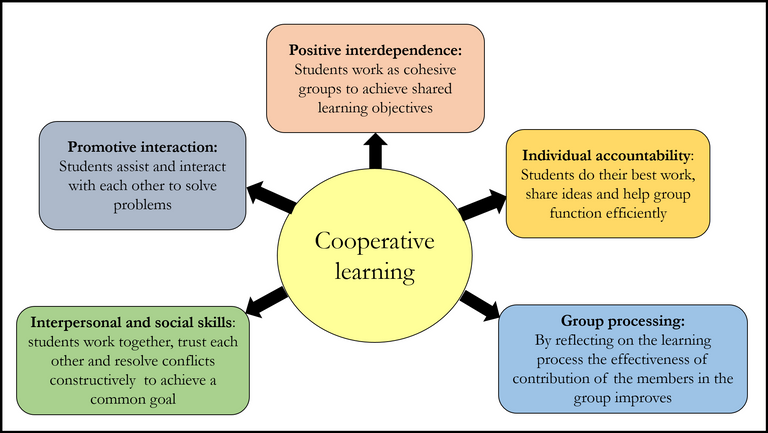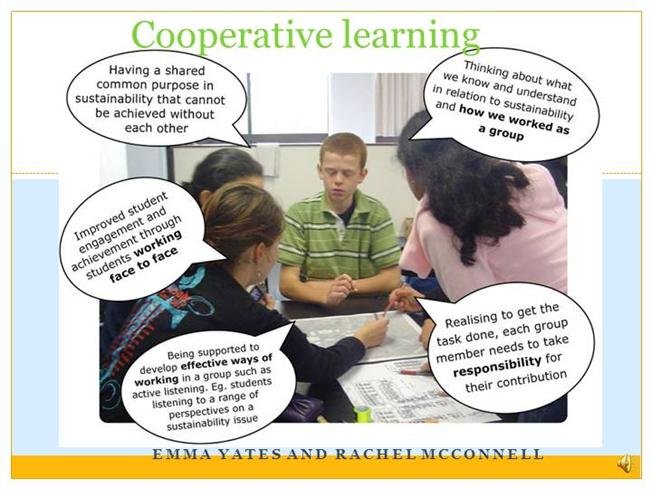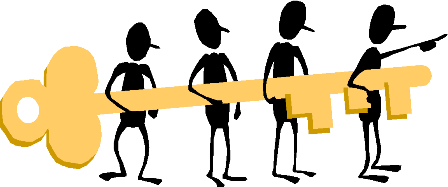Well, there's a term for you! Sounds about straight forward, doesn't it? A few single words spring to mind when I think of "co-operative" - together, group, team, partner, support, collaboration. How difficult can it be, right?
Wrong!

When digging deeper into this term, you'll find that there's a lot more to it than it merely being just another fancy word for group work. It includes more than learners simply working in groups.
What is co-operative learning?
This is the best description I could find:
Cooperative learning is a successful teaching strategy in which small teams, each with students of different levels of ability, use a variety of learning activities to improve their understanding of a subject. Each member of a team is responsible not only for learning what is taught but also for helping teammates learn, thus creating an atmosphere of achievement.
Source

It's safe to say that the co-operative model is not the result of any single stream of educational thought. When you really put your hard hat on and start digging deeper, you'll find that its roots go back to the early Greeks, and contemporary developments started with early twentieth century educational psychologists and pedagogical theorists.
In 1916 John Dewey wrote a book called Democracy and Education. Dewey's conception of education was that the classroom should mirror the larger society and be a laboratory for real-life learning. This meant change. Teaching was no longer a one-man show but it required educators to create within their learning environments a social system characterized by democratic procedures and scientific processes. Their primary responsibility was to engage learners in inquiry into important social and interpersonal problems. Learners were to be "pushed" a little into problem-solving and by interacting with one another, they were to start learning how other children think.
No doubt many of you will say that you often utilize co-operative learning activities in your classrooms, and this is a good sign for the future because you are already in the process of gaining insight into the functioning of co-operative learning. If a co-operative approach to teaching is adopted, democracy can really come into play, with the learners contributing their experiences from their daily lives as well as having their needs met.

Learner participation through co-operative learning will not only lead to more meaningful learning taking place in classes, but will also provide educators with a possible means of coping with the question of how to teach large classes.
This instructional design stimulates peer interaction and learner-to-learner co-operation and in the process, fosters successful learning by all. Not only does it aim to improve learner understanding and skills in the learning area being taught, but it also helps the learners to develop co-operative group skills and to gain an appreciation for the different individuals and cultures in many classrooms.

Have you tried this teaching strategy? Are you using it?
Let me know about your experiences so far!
Resources & extra reading:
All about co-operative learning | Wiki - Co-learning | Strategies | John Dewey's Democracy and Education | Philosophical teaching
